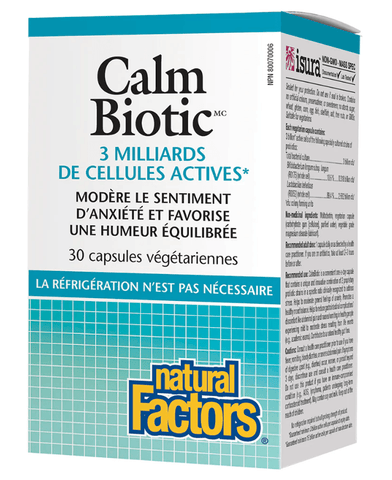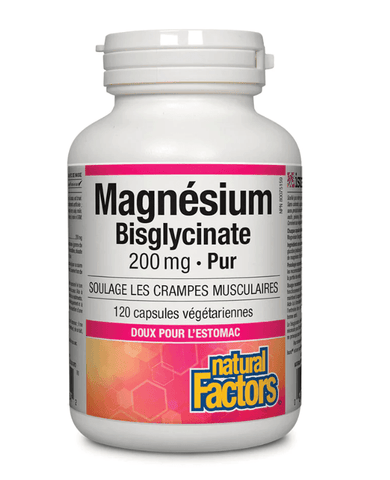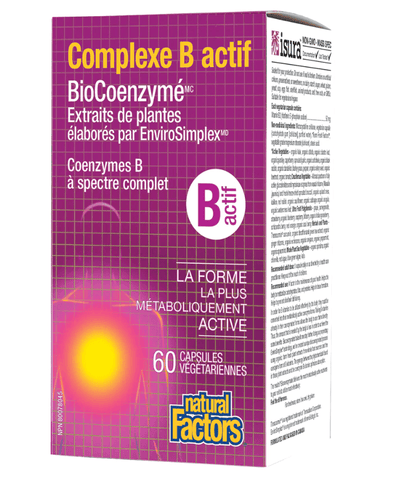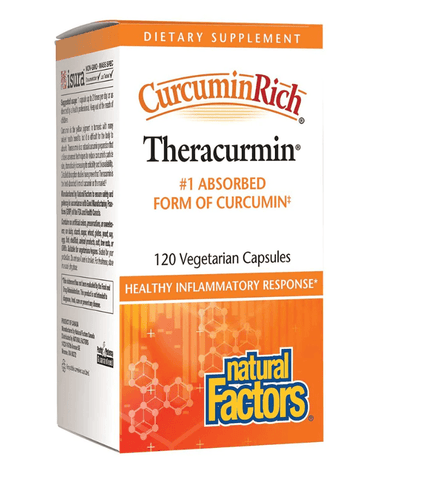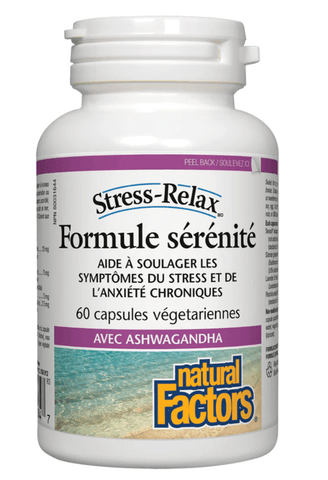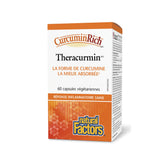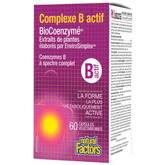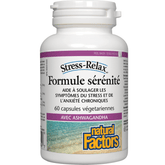It is estimated that around 90% of the population will experience a traumatic event at least once in their lives. This could be the death of a loved one, a serious accident, an assault or any other circumstance that upsets our equilibrium and affects our mental health.
Mental health problems have not always been very well understood, and although we still don't know everything about them today, we have made great strides in recent decades.4
In fact, over the last few years, research and attitudes have evolved, and the stigma has been slowly receding.
Even if there are still taboos, it's increasingly possible to talk openly about mental health, trauma, stress and the symptoms that follow: anxiety, depression, insomnia, hypervigilance, memory loss (and more).4 When something doesn't work the way it used to, valuable help can be obtained more easily to return to optimal health.
The theme here is psychological trauma, and more specifically, post-traumatic stress disorder (PTSD) and its symptoms.
It's a delicate subject, and one of bewildering complexity. I'll do my best to give you some of the facts, based on my recent research, and offer a naturopathic perspective on the symptoms, alongside conventional methods. I do not claim to be an expert on PTSD.
And be careful here: we are NOT saying that natural recommendations REPLACE doctor's recommendations and psychological therapy. Of course, it's still essential to go the conventional route.
You shouldn't choose the conventional or complementary method. On the contrary, it's all about working hand in hand towards an integrative approach that focuses on human well-being as a whole.
Psychological trauma and post-traumatic stress: who's affected?
Trauma alone affects a large proportion of the population. Even more than you might think.
In fact, Dr. Pascale Brillon, a specialist in post-traumatic stress and grief, confirms that 90% of the general population will experience at least one traumatic event in their lifetime.4, 5 In the end, it affects almost everyone!
In 60% of cases, the most frequent trauma is the sudden death of a loved one.
A study of 2181 subjects showed that :
- Nearly 40% of people will experience a physical assault
- 29% of people will witness the death or serious injury of another person
- 28% will experience a serious vehicle accident
- 17% will experience a natural disaster4, 5
Psychological trauma and post-traumatic stress: what are the symptoms?
According to Dr. Brillon, many victims may experience strong physical symptoms associated with the traumatic event, such as panic attacks, cold sweats, palpitations, dizziness, dry mouth, etc. These physical signs stem from the body's protective mechanism, commonly known as anxiety! These physical signs stem from the body's protective mechanism, commonly known as anxiety!4
Fortunately, not everyone who experiences a traumatic event will develop post-traumatic stress disorder (PTSD). It's important to distinguish between the two: most people will experience one or a few mild or intermediate symptoms, but these are mostly temporary.4 And even for these milder symptoms, the natural solutions described below will be of great help.
Between a quarter and a third of people who have experienced a shock will exhibit several severe and prolonged symptoms, leading to a diagnosis of PTSD.4, 5
This represents 8 to 9.2% of the general population, but the risk for women is increased by the prevalence of sexual assault.4 (Varies according to source)
According to Dr. Daniel Dufour, most stress is directly or indirectly related to trauma. And he believes that PTSD is under-diagnosed.4 In fact, physical symptoms can mask the cause. Like heartburn, backache or headaches.
As Naturopathy is a causal approach, we always try to understand the cause, while addressing the symptoms, but that's not always easy in such circumstances. Nervous disorders can be linked to an inflammatory response.
Physical and emotional stress
Let's compare the stress incurred by an emotional/psychological trauma versus a shock induced by a physical stress such as a concussion.
There are indeed many similarities; the major distinction being that the impact is emotional/psychological rather than physical, but many reactions in the body are comparable including that of inflammation.

Image from : https://pubmed.ncbi.nlm.nih.gov/27510423/
The image above, taken from a study on PUBMED, depicts the amygdala, insula and medial prefrontal cortex (center ofThe above image, taken from a study on PUBMED, shows the amygdala, insula and medial prefrontal cortex (emotional, sensory and behavioral interpretation center) sending distress messages in response to stress/trauma.
The pituitary gland calls on the adrenal glands to produce stress hormones (cortisol) in response to danger.
Immune cells (macrophages and T cells, pictured) emit inflammatory messengers called cytokines. C-reactive protein, a measurable inflammatory marker in the blood, increases and re-stimulates the emotional-sensory-behavioral interpretation center (9). The study highlights the maintenance of fear and anxiety behaviours associated with inflammatory markers in the PTSD.
Psychological trauma and post-traumatic stress: the gut, the second brain
The central and intestinal nervous systems form from the same initial tissue during fetal development.7, 17
The activity of intestinal neurons is so important that the scientific literature on the close link between the brain and the intestine has exploded in recent years.7
In fact, these two essential organs function interdependently, maintaining two-way communication via the vagus nerve. This nerve is the longest of the 12 cranial nerves, and represents the channel of exchange between the central and intestinal SNs. Information received in the intestine via the vagus nerve ensures many involuntary functions in the body, without the brain even intervening directly.7
The brain-gut relationship
Bacteria colonizing the gut stimulate the vagus nerve, influencing underlying functions such as behavior. So, just like neurons in the brain, intestinal microorganisms address the brain via the vagus nerve.7
In addition to all this, the gut and the microorganisms it contains produce a host of important substances, such as neurotransmitters.
Serotonin (the neurotransmitter of happiness and well-being), on which many anti-depressant drugs act in the brain, is in fact mainly produced at intestinal level. In fact, 80% to 90% of serotonin is produced in the stomach rather than between the ears.
The same applies to a host of molecules, including other neurotransmitters such as dopamine, GABA and even melatonin, that precious sleep hormone.
Don't think that neurotransmitters produced in the intestine will cross the blood-brain barrier that protects the brain. No, they will have an effect on the brain by attaching themselves to the intestinal receptor to communicate messages via the vagus nerve.7
It's important to understand that the sharing of information between the "two brains" goes both ways. In other words, gastrointestinal disorders are likely to cause inflammation in the brain, and the impact of emotional trauma on the brain is also likely to cause gastrointestinal disorders.13 These are all fairly common symptoms of one or more stressful events.5
A common response to stress and trauma
When inflammation rages in the brain following a traumatic event, the gut also responds to the shock and storm of cytokines, rising cortisol and elevated C-reactive protein. Among the inflammatory markers noted in studies of patients who have experienced trauma or stress, zonulin was found in their blood.10
Zonulin is a peptide protein produced and released by the intestine when its tight junctions are loosened. It therefore represents an inflammatory marker directly linked to intestinal porosity, better known as "leaky gut". As previously mentioned, the integrity of the intestinal mucosa and its microbiome is a very important sign of overall health, and even mental health.7, 10
The response to trauma involves several systems: nervous, immune, glandular and digestive!
In short, happiness in the brain = happiness in the gut!
AND happiness in the gut = happiness in the brain.7
We can thus use this axis to support a return to psycho-emotional health.7
Psychological trauma and post-traumatic stress: Let's talk about natural solutions
By understanding how the nervous, digestive, glandular and immune systems interact, we can work through the gut to alleviate the inflammatory response and thus alleviate the nervous symptoms associated with trauma, anxiety, depression, gastrointestinal disorders, insomnia, hypervigilance and so on.
1) Natural solutions for good intestinal health
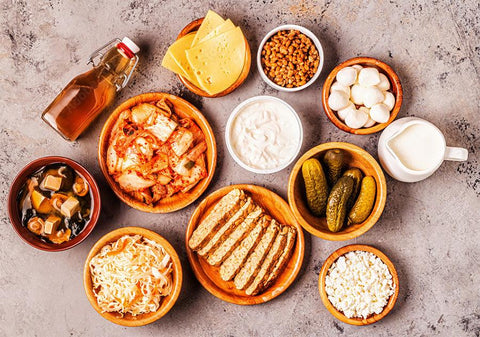
In his book Brain Maker, translated as : Gut to Brain, theDr. David Perlmutter explains the importance of gut health and balanced intestinal bacteria for a healthy brain.7
He places a great deal of emphasis on the quality of our diet, including :
- Fermented foods rich in probiotics and prebiotics that nourish good bacteria.7 He mentions fermented vegetables such as kimchi, sauerkraut, kefir, yoghurt (including coconut yoghurt), kombucha, tempeh and so on..7
- A low-carb, high-fiber diet. According to him, the more sugar you consume, the sicker your microbiota will be, and the more you will stimulate your inflammatory markers, both intestinal and cerebral.
- A diet rich in healthy fats, such as omega-3s.6, 7
- A gluten-free diet, which is harmful to intestinal health7 and directly linked to an increase in zonulin, a recommendation supported by the work of Dr. Alessio Fasano.7
- Water must be filtered to remove chemical substances such as chlorine, which are harmful to intestinal bacteria.7
- He also recommends fasting at each change of season.7 I would add every day over a 12-hour period. For example, drink only water between 7pm and 7am.
- The addition of probiotics as a supplement.
2) Natural solutions: Calm Biotic from Natural Factors
With Calm BioticCanadian company Natural Factors offers a probiotic specifically designed to support the gut/brain axis: two patented probiotic strains (human and dairy) for which studies have demonstrated a significant positive impact on stress, mood and feelings of anxiety.11
A double-blind, placebo-controlled trial also demonstrated action on stress-related gastrointestinal discomfort, after 3 weeks of use.11
3) Natural solutions: magnesium
Magnesium is a major macro-mineral in the body, contributing to hundreds of essential metabolic reactions.16 In fact, along with B6, it is essential for the synthesis of serotonin and melatonin, both in the brain and the intestine.16
Magnesium has a sedative effect, as it increases the affinity of melatonin with its receptors. It is therefore excellent to take in the evening to promote sleep.
Magnesium deficiency can lead to insomnia, fatigue and psychological changes such as anxiety, confusion, concentration and memory problems.16
Glycine acts as a carrier in the intestine, accompanying the magnesium molecule. It can also be recycled to produce GABA, as it is a precursor.
The therapeutic dosage is between 300 mg and 600 mg for an adult.16
Maximum absorption does not exceed 200 mg at a time. For higher doses, you need to space out your doses throughout the day. For example, 200 mg at lunch, 200 mg at dinner and 200 mg at bedtime. A daily dosage of 600 mg is considered high.
4) Natural solutions: Complexe B Actif
Group B vitamins are essential for optimal nerve function.16 Like a train with several carriages, it's best to take them all together, unless a trusted naturopath advises otherwise.
Natural Factors offers a BioCoenzyme Active B ComplexThis means that the vitamins are already in their active form, ready to be used by the body.11, 16 If they are not already coenzymed (as part of a regular B complex), they have to be converted in our body, which is not always optimal, depending on our genetics and diet.
Let's explore the beauty of each of these all-too-frequently overlooked vitamins.
B1 - Thiamine
- B1 deficiency leaves part of the nervous system particularly vulnerable to inflammation.11
- Lowers lactic acid levels, which can reduce anxiety.3, 11
B2 - Riboflavin
- Maintains glutathione peroxidase levels, which are often inversely proportional to inflammation.3, 16
- Participates in energy production.
B3 - Niacin
- Essential for proper functioning of the nervous and digestive systems.16
- Promotes the conversion of serrotonin into melatonin, helping to achieve a good night's sleep
- Reduces the destruction of tryptophan (serotonin precursor) by the liver
- When B3 is deficient, the body converts tryptophan into B3 (leaving less room for serotonin).3, 16
- Promotes production of PGE3 (anti-inflammatory).3, 16
B5 - Pantothenic acid
- A lack of B5 is associated with sleep disorders.
- Fat and hormone synthesis.3, 16
B6 - Pyridoxine-5 Phosphate
- Deficiency can lead to nervousness, irritability and even depression.16
- With magnesium, participates in serotonin metabolism.
- Supports GABA production.
- Balances certain inflammatory mediators.3, 16
B9 - Folic acid
- Necessary for optimal serotonin levels
- With B12, helps break down stress hormones such as cortisol.3, 16
B12 - Methyl Cobalamin
- Helps synthesis of dopamine and serotonin
- Helps pineal gland produce melatonin
- With B9, helps break down stress hormones.3, 16
5) Natural solutions: Theracurmin by Natural Factors
Research abounds on turmeric. This spice from the ginger family, a key ingredient in curry, is now recognized for its anti-cancer, antioxidant, anti-inflammatory, liver-supporting and other properties.
Natural Factors offers a product that releases turmeric's active compound, curcumin, for optimal assimilation.
In our case, curcumin is able to reduce inflammation in the brain AND intestine.
In fact, studies have demonstrated a therapeutic regulatory action on various inflammation pathways, notably cytokines. In turn, it has a neuroprotective effect on the brain.11 Isn't it great to be able to support a psychological journey with molecules that also work for our well-being?
6) Natural solutions: adaptogenic plants
Adaptogenic plants are those traditionally used to help the human body adapt to its environment. We're talking here about stress, inflammation, physical and mental overload and much more.
Natural Factors offers a combination of adaptogenic and calming herbs with the Serenity formula.
This blend of ashwagandha, ginseng, lavender and rhodiola is ideal for conditions of stress, overwork and other associated symptoms.
In addition to supporting energy, concentration and restful sleep, it helps reduce anxiety and depression, mental fatigue and irritability.11
Ashwagandha is known to lower blood levels of C-reactive protein and cortisol. Its profound calming effect comes from its ability to increase the action of GABA, an inhibitory neurotransmitter.11, 15
Rhodiola is traditionally known as a physical, mental and emotional tonic.15 This plant can stimulate the central nervous system to regulate stress hormones such as cortisol. It also helps increase the affinity of receptors for serotonin.11 It has been studied in conjunction with turmeric in the context of inflammation in mice under stress, with convincing results in the regulation of various inflammatory markers.14
The Siberian ginseng included in the blend is particularly interesting for fatigue and physical stress.11, 15
Sweet lavender balances the blend by activating the parasympathetic nervous system.11, 15 Serotonin production is closely linked to the parasympathetic nervous system and relaxation.17
Natural solutions to psychological trauma and post-traumatic stress: in conclusion
Social interaction and moments of relaxation such as taking a bath, drawing, meditating or walking and breathing in nature may seem trivial, but should be practised daily by anyone wishing to maintain or recover their mental health.
Indeed, positive emotions such as calm and well-being support the immune system, helping to regulate systemic inflammation, as well as activating the parasympathetic nervous system.6, 17
For more information on the importance of stimulating the parasympathetic nervous system, please consult the article dedicated to the parasympathetic nervous system. Top 5 essential oils for better sleep.
In conclusion, I hope you've enjoyed these explanations, which are perhaps a little more detailed than usual. I hope they help you to understand the complexity of human beings in our constant quest for balance.
About the author
Marie-France Trudelle, Certified Naturopath
In-depth knowledge of :
- Nutrition and dietary supplements
- Stress management and sleep
- Physical activity or movement
- Massage therapy
References
- https://cmha.ca/fr/qui-nous-sommes/acsm-national/notre-histoire/
- https://www.canada.ca/fr/sante-publique/services/maladies-chroniques/maladie-mentale.html
- Chaput Mario, Le sommeil tranquille, natural solutions to insomnia, les éditions Québec livre, 2013, 212 pages.
- Brillon, Pascale Ph.D., Recovering from trauma, les éditions Québec livre,2017, 269 p.
- Dufour, Daniel Dr, The end of the tunnel, healing from post-traumatic stress disorderLes éditions de l'homme, 2018 193 pages
- Servan-Schreiber, David, HealingÉditions Robert Laffont, S.A " Paris, 2003, 302 pages
- Perlmutter, David Dr, Gut to BrainOriginal version: Brain maker, Hachette livre (Marabout) 2016, 415 pages.
- https://pubmed.ncbi.nlm.nih.gov/29016379/
- https://pubmed.ncbi.nlm.nih.gov/27510423/
- https://papers.ssrn.com/sol3/papers.cfm?abstract_id=4214319
- https://ca.naturalfactors.com/fr
- https://www.euphytosegamme.fr/confort-intestinal/intestin-et-cerveau/lintestin-notre-deuxieme-cerveau
- https://pubmed.ncbi.nlm.nih.gov/35089910/
- https://pubmed.ncbi.nlm.nih.gov/29341943/
- Lessard, Manon, Phytothérapie, IESN, 2014
- Lecompte, Michel, Nutrithérapie orthomoléculaire, IESN, 2016
- Marieb Elaine N. and Hoehn Katja, Human anatomy and physiology, Fourthème édition, éditions du renouveau pédagogique, 2010, p. 519-520



